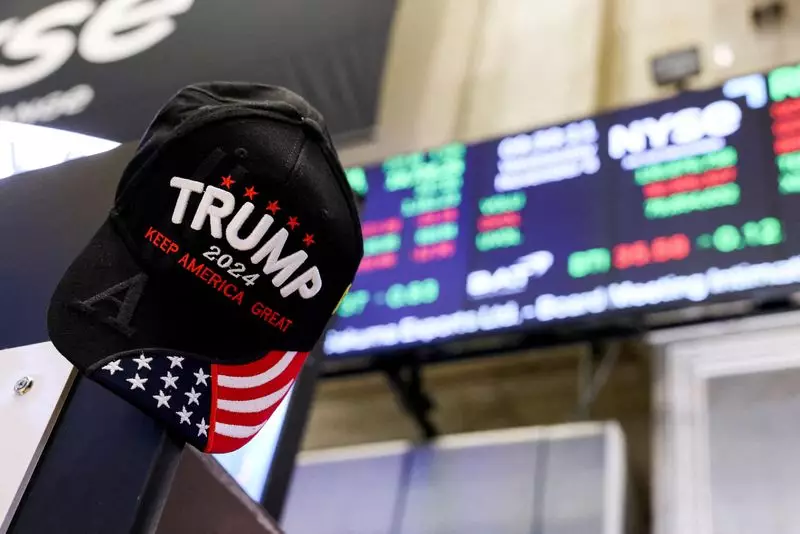The landscape of Wall Street on a recent Monday showcased renewed investor enthusiasm as key financial metrics pointed upward, underscoring both economic recovery and strategic political appointments. The pivotal moment was undoubtedly the nomination of Scott Bessent as U.S. Treasury Secretary, which legislators and financial professionals alike viewed positively. This appointment not only soothed concerns regarding reckless government borrowing but also precipitated a decline in bond yields, making equities more attractive.
Investor Sentiment and Market Responses
In the wake of Bessent’s nomination, a significant rally across major indices occurred. The small-cap Russell 2000 index achieved a historic milestone, reaching an unprecedented high, reflecting investor confidence in the capacity of these smaller entities to prosper under potentially favorable economic conditions. The S&P 500 closed up by 0.30%, amounting to a gain of 17.81 points, while the Nasdaq Composite and the Dow Jones Industrial Average saw similar upticks of 51.50 points and 439.02 points, respectively. These movements were indicative of broader market resilience and a shift toward growth-oriented stocks.
Interestingly, the proportion of advancing stocks compared to decliners on the NYSE stood at an impressive 3:1 ratio, signaling widespread optimism. The market was buoyed by 836 new highs set on the NYSE, an encouraging sign for investors as they gauged the overall health of the economy. With the backdrop of lowered Treasury yields, which primarily benefited rate-sensitive sectors, real estate stocks enjoyed a notable surge alongside robust performance from small-cap and mid-cap stocks.
Specific sectors also demonstrated striking performance. The energy sector, however, faced challenges, declining by approximately 2% as oil prices fell amidst talks of a ceasefire between Israel and Lebanon. Such geopolitical developments often have a ripple effect on energy prices due to speculation about supply disruptions. This juxtaposition—whereby bond yields fell alongside oil price reduction—underscores the interconnected nature of global financial markets.
As investors eye data-driven triggers, attention has shifted towards the upcoming Personal Consumption Expenditure (PCE) report. The PCE is a vital measure of inflation and an essential tool for the Federal Reserve. This week’s readings are particularly critical as they come just before the U.S. Thanksgiving holiday. Investors remain intrigued by the possibility of further rate cuts, as the CME Group’s FedWatch tool currently assigns a 56.2% probability for another 25 basis-point reduction by the Fed.
The macroeconomic landscape appears buoyed by expectations surrounding the Trump administration’s policies, especially with an ally in Congress. With the anticipation of business-friendly measures, small-cap stocks have returned to investor favor. These firms historically benefit from national policies that stimulate domestic economic activity. Investment strategist Adam Sarhan noted that underpinnings like the Federal Reserve’s easing policy have allowed lagging sectors to flourish anew.
Conversely, inflation remains a specter haunting investors, casting shadows on policy efficacy. Should inflationary pressures escalate, it could lead to a deceleration of interest rate cuts, contradicting the ongoing bullish sentiments in the market. Notably, despite bullish daily performance, stocks such as Macy’s suffered due to internal issues such as accounting delays, emphasizing that not all equities are on solid footing. In stark contrast, Bath & Body Works witnessed a staggering 16.5% increase after it raised its profit forecast, showing how consumer sentiment can powerfully sway stock performance.
The recent developments in the U.S. markets reveal a complex interplay of political decisions, economic data, and global events. While optimism reigns, the possibility of inflation and market volatility looms large. Investors must remain astute, balancing enthusiasm with caution as they navigate through a landscape marked by uncertainty and potential reward. As we move closer to critical economic indicators and end-of-year assessments, the narrative of Wall Street will continuously evolve, compelling stakeholders to remain vigilant and adaptable.

